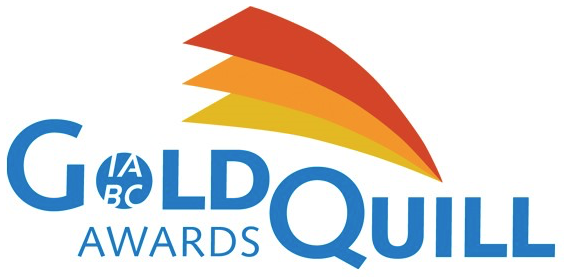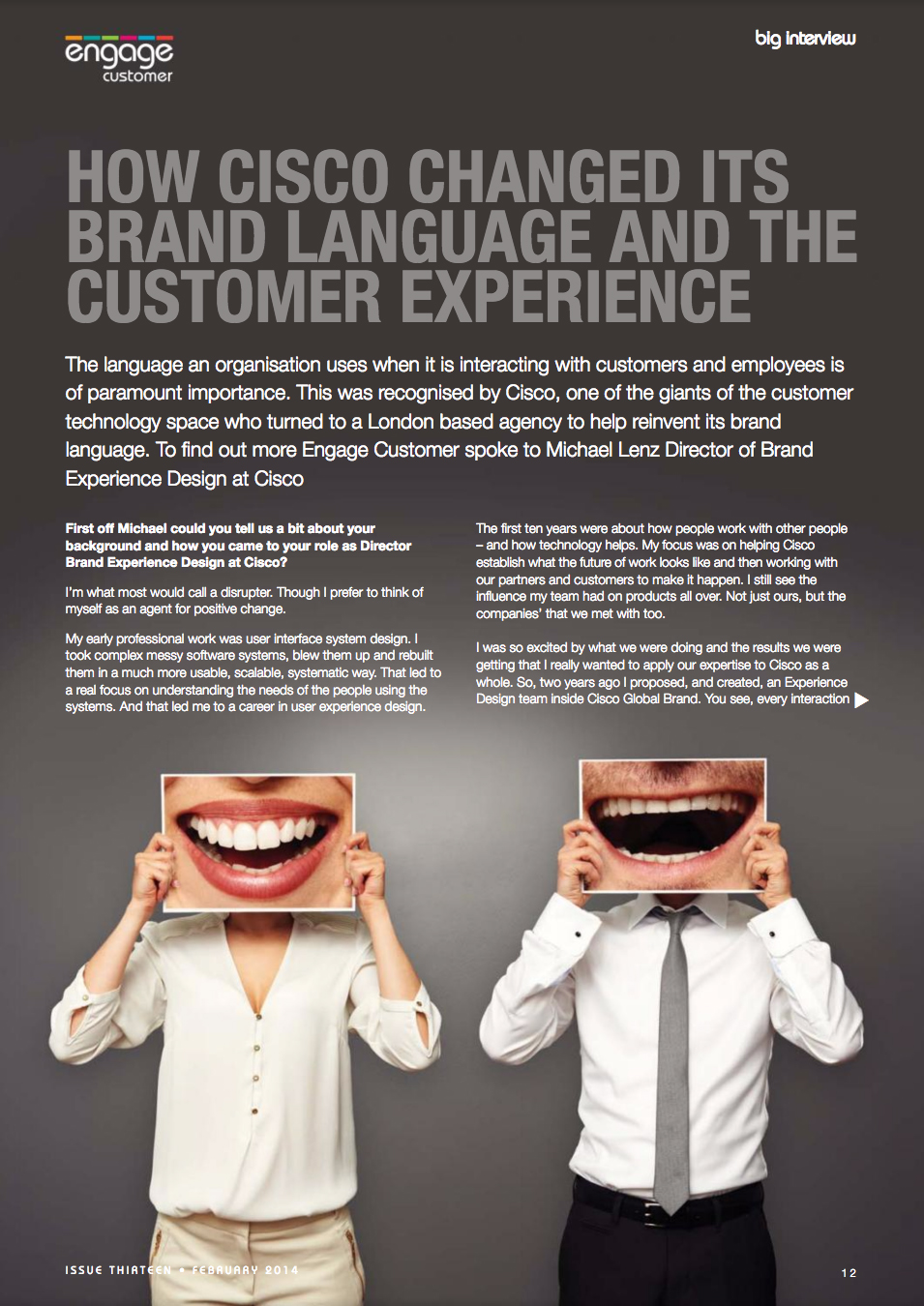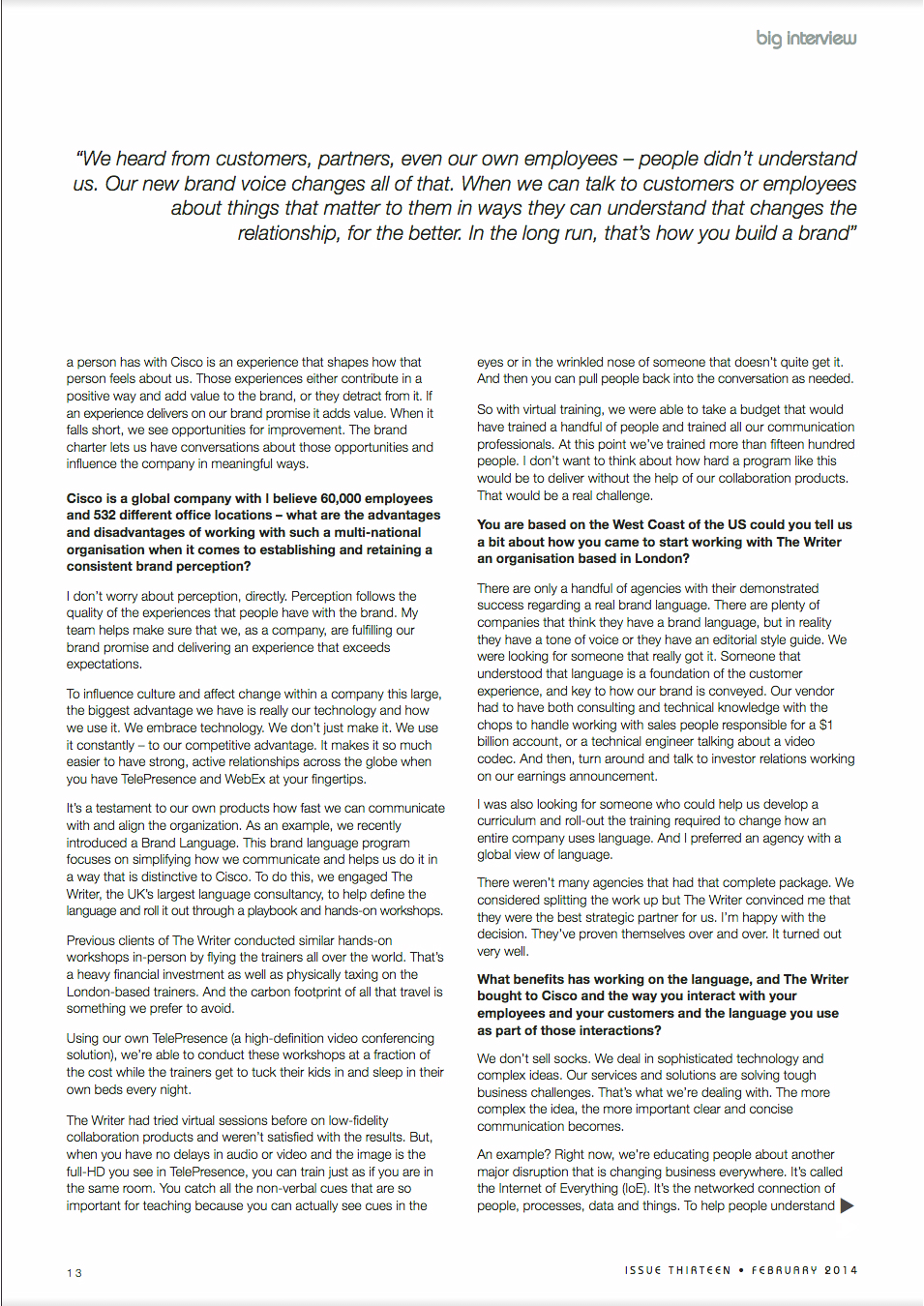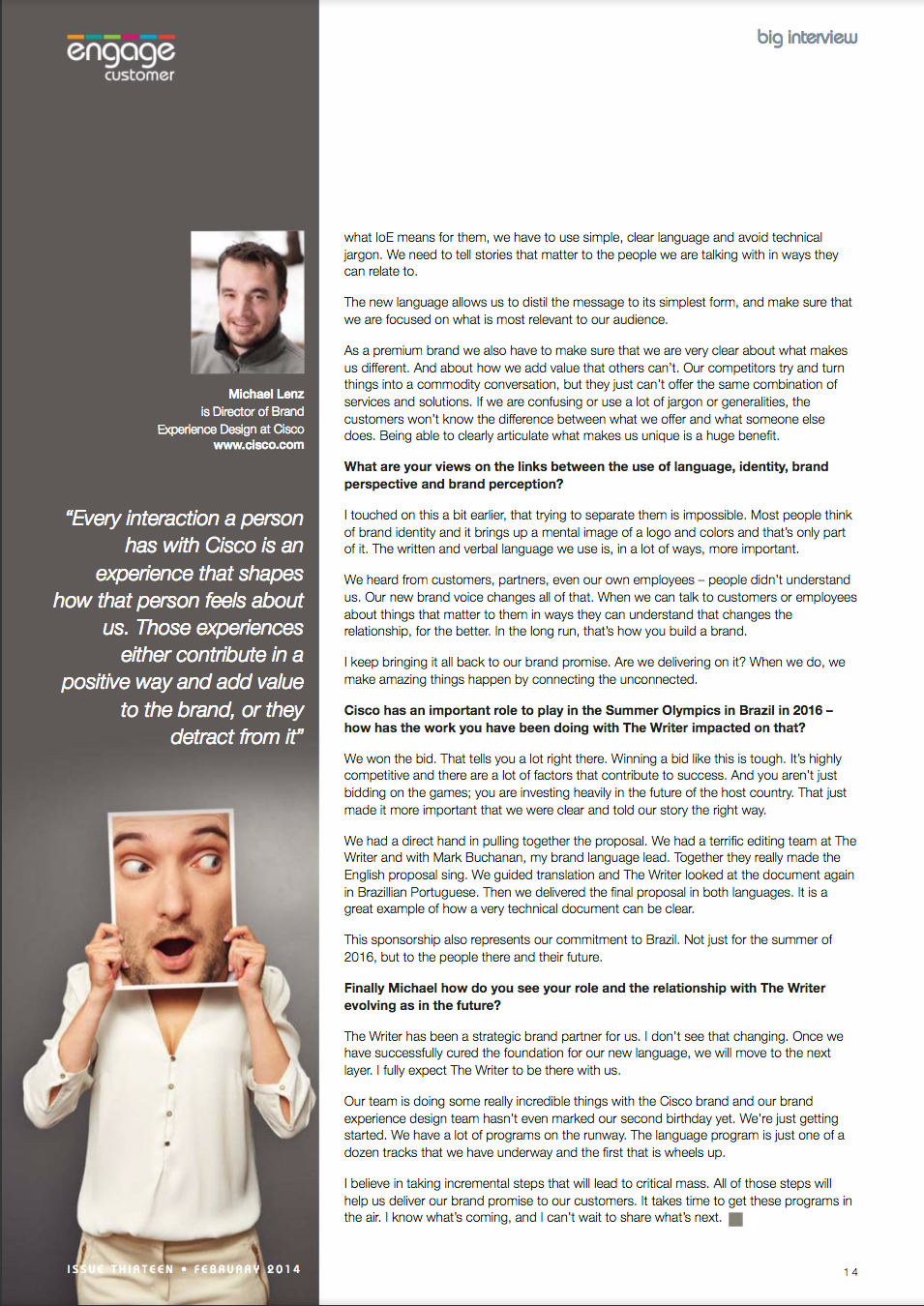Cisco won more business, without changing the way it does business. Happy customers came to like the company even more. Employees started saving a ton of time. How? We changed the way we talked about our business.
Our Experience Journey Research, taught us that we had all this jargon and tech-speak that was baffling to our customers.
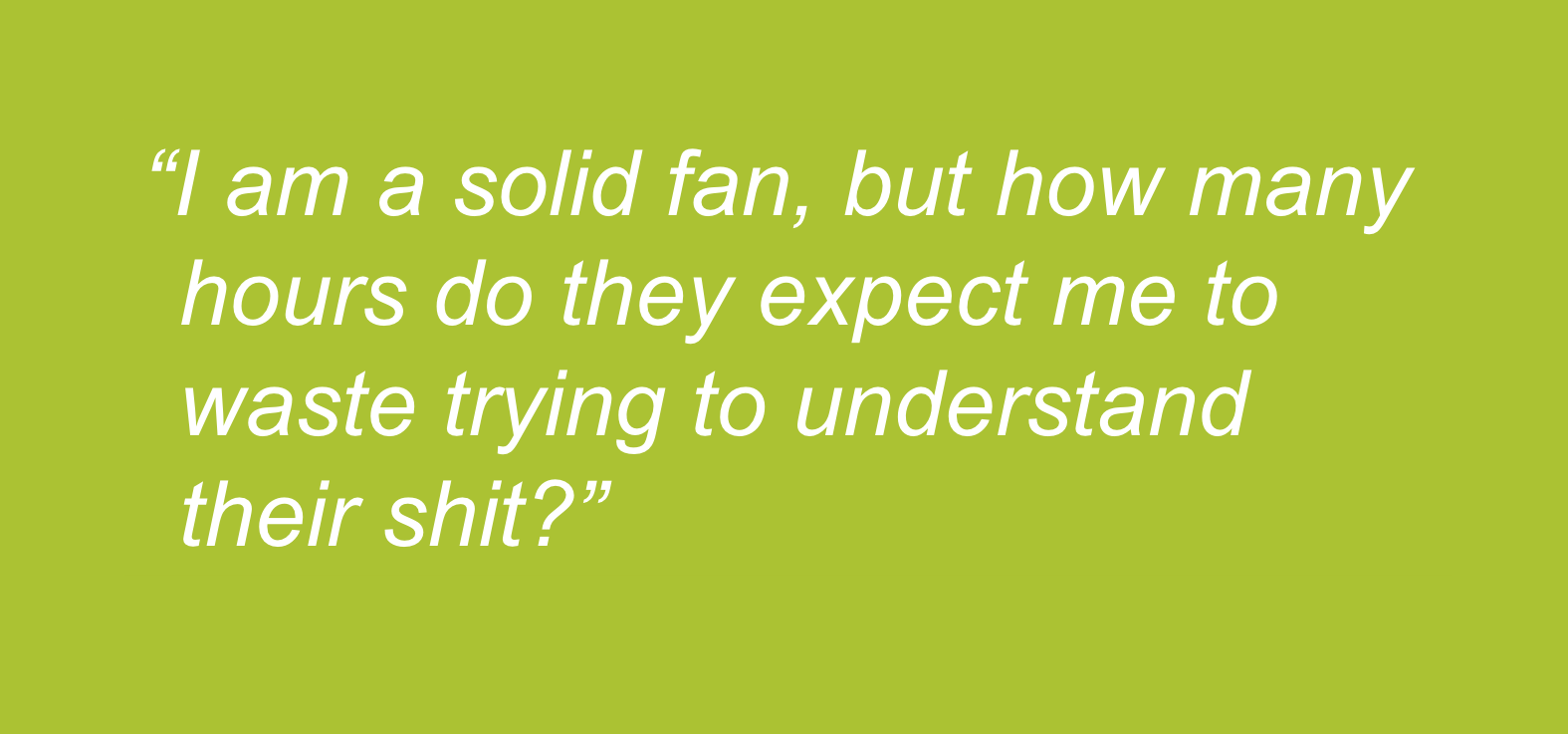
Our language was confusing. And it didn’t set us apart from the competition. Not only that, but people also saw us as arrogant … the death knell of a brand.
I realized we lacked a clear verbal identity. But I also knew it wasn’t as simple as telling people to change the mechanics of their writing and speaking. To change the language, we also had to change the culture.
No big deal right? Just change the culture of a company with 70,000 employees, 30,000 contractors, and 500 offices in 128 countries. Impossible is more like it. And “impossible” is exactly what I heard when I told people what I wanted to do.
Successful coaches all have one thing in common, they don’t overwhelm their students. They understand that you can’t change behavior and bad habits overnight. Instead, they give you one piece to master at a time, starting with the foundation, and adding building blocks that put together, give you the outcome you want.
With the help of London-based The Writer, we conducted Design Thinking workshops to engage customers, stakeholders, and our leadership teams. We created two principles for the program:
1. Make it simpler
2. Make it more distinctive
Make it simpler


After they mastered making it simpler, we moved on to the second principle: making it more distinct.
Make it more distinctive
In a world of copycats, a unique voice stands out from the crowd. It rings clearly, cutting through the competitive noise. That unique voice has to reflect your brand’s personality and values. Our brand promise set the tone for our guidance around: content, structure, and tone.
Dreaming and Doing (content)
inspires confidence
Short and Relevant (structure)
gets attention
Bold and Human (tone)
builds relationships
Combine the simple and distinct voice and you end up with a unique, engaging way of communicating, like this before and after example shows.
The Cisco UCS 2200 Series extends the I/O fabric between the Cisco UCS 6100 and 6200 Series Fabric Interconnects and the Cisco UCS 5100 Series Blade Server Chassis, enabling a lossless and deterministic Fibre Channel over Ethernet (FCoE) fabric to connect all blades and chassis together. Since the fabric extender is similar to a distributed line card, it does not perform any switching and is managed as an extension of the fabric interconnects. This approach removes switching from the chassis, reducing overall infrastructure complexity and enabling Cisco UCS to scale to many chassis without multiplying the number of switches needed, reducing TCO and allowing all chassis to be managed as a single, highly available management domain.
Source: Cisco UCS 2200 Series Fabric Extenders Data Sheet
Simplify your network infrastructure. Scale to many chassis using fewer switches to reduce your total cost of ownership. And make life easier for your network administrators with a single, highly available management domain.
The Cisco UCS 2200 Series:
- Extends the I/O fabric between the 6100 and 6200 Series fabric interconnects and the 5100 Series blade server chassis.
- Connects all blades and chassis together.
- Creates a lossless and deterministic Fibre Channel over Ethernet (FCoE) fabric.
Since the fabric extender is similar to a distributed line card, it doesn’t perform any switching and is managed as an extension of the fabric interconnects.
Instant success
We saw immediate success, helping close a $450M deal. When used on the web, we saw a 50% drop in abandonment rate, 35% increase in time on page, and a 150% increase in click-through. With numbers like these, you couldn’t ignore it.
In the United States, business decision makers liked this new way of writing 29% more often than the complex tech-speak from before. All over the world, customers found the new writing 11% more trustworthy and 12% more persuasive.
Soon all new employees and anyone in a marketing or communication role had to get our training.
Four years later, the way the people communicate at Cisco has completely changed. Over 6,000 people went through our half-day workshops. And as people left Cisco they took this changed perspective with them, influencing their new company.
Momentum inside and out
Our work got noticed. Internally we ended up doing all-hands all over the company. Externally we received attention from the international media, we keynoted dozens of conferences, and won awards from professional organizations.
You can find a small collection of press coverage on the Speaking & Publications page.
Get your copy of the 10 tips for better writing
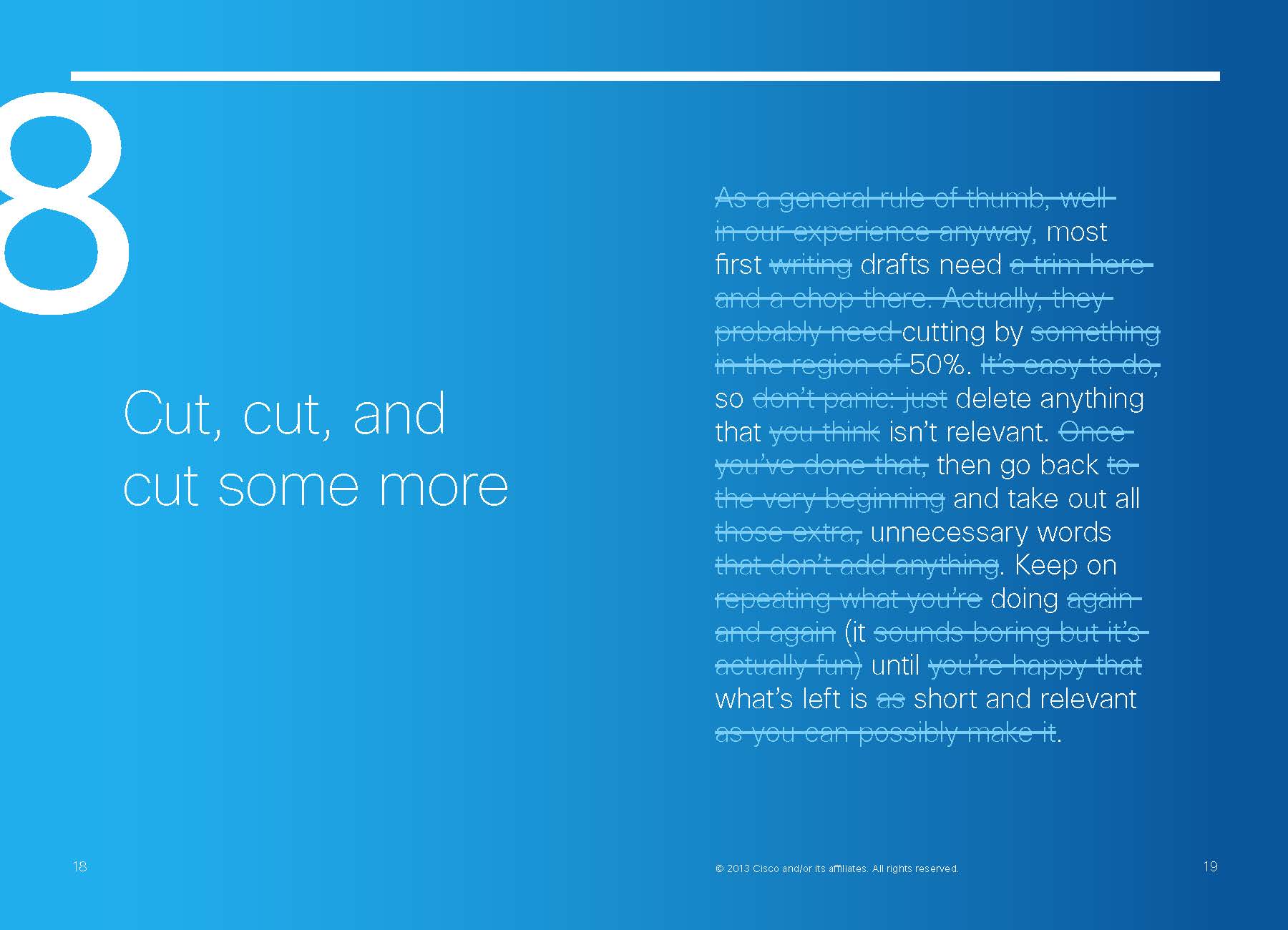
People need pragmatic guidance they can use, and these 10 tips did just that. How useful was it? Our CMO carried a copy with her, and it won an IABC Gold Quill Award. We had so many requests for it we made it available: https://cisco.box.com/cisco10tips
Program Awards

